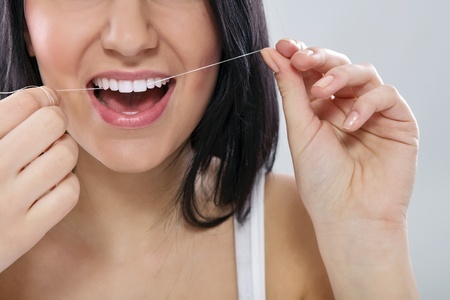Dentists Respond to Flossing Debate

By now you’ve seen the headlines, and you’ve heard the cheers as thousands of people chucked their dental floss into the trashcan never to be seen again.
It was back in 1979 that the federal government adding a daily flossing recommendation to its list of dietary guidelines, and as the Associated Press reported earlier this year scientific researchers have claimed to find ‘weak’, ‘unreliable’, and/or ‘very low-quality’ evidence of flossing as correlated with the prevention of gum disease and tooth decay. For this reason, the guidelines were amended and flossing removed.
But wait: As your Manassas general dentist we feel it is our responsibility to jeer a little. JEER. Jeer jeer.
Despite a lack of definitive results gathered from long-term, large-scale clinical studies, the American Dental Association, the American Academy of Periodontology, the National Institutes of Health, and Railroad Dental Associates all stand strongly behind the assertion:
Yes, you should still floss.
“Here’s the thing,” says Dr. Wayne Aldredge, president of the American Academy of Periodontology. “A lack of quality evidence is not indicative of a lack of effectiveness. There is no dispute over whether flossing removes plaque and debris — it does. Since prolonged exposure to the bacteria in plaque may lead to gum disease, removing it is advised.”
Flossing is key, Aldredge continued, to ridding one’s teeth and gums of the plaque that plagues.
Dr. Timothy Iafolla of the National Institute of Dental and Craniofacial Research concurs. He holds that short-term study results do in fact indicate the medical benefits of flossing; the removal of plaque and debris reduces gum inflammation and bleeding. “We just have to extrapolate that flossing may help prevent gum disease,” he says. “Because gum disease can take up to 15 years to develop, it’s nearly impossible to study that as an endpoint.”
To date gathering solid qualitative research has been difficult to come by because “self-reports are unreliable… And if you had a control group, they’d probably know their gums were being studied, so they might step up their flossing, [thus] weakening the study.”

